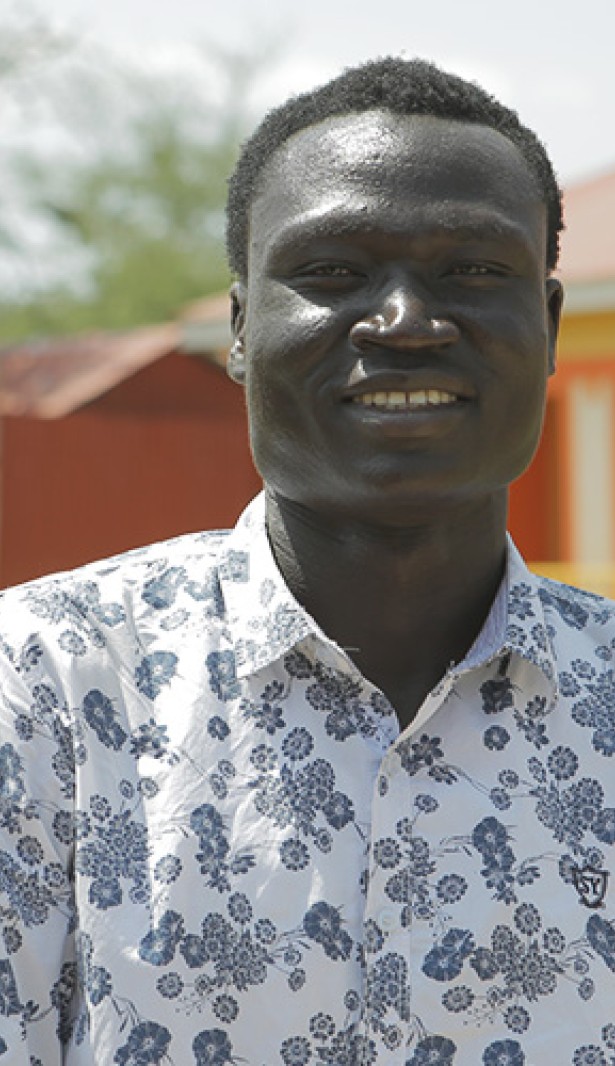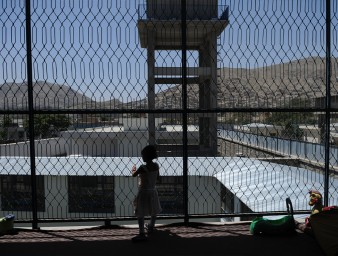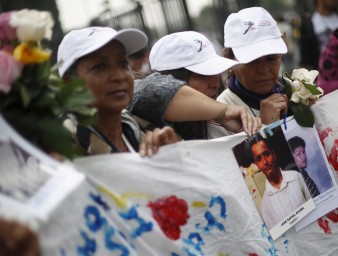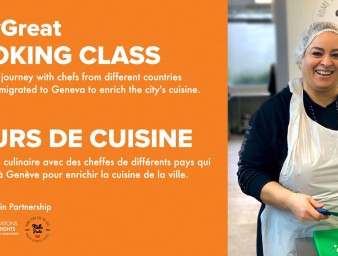"Home is the people around you."
20 June 2021
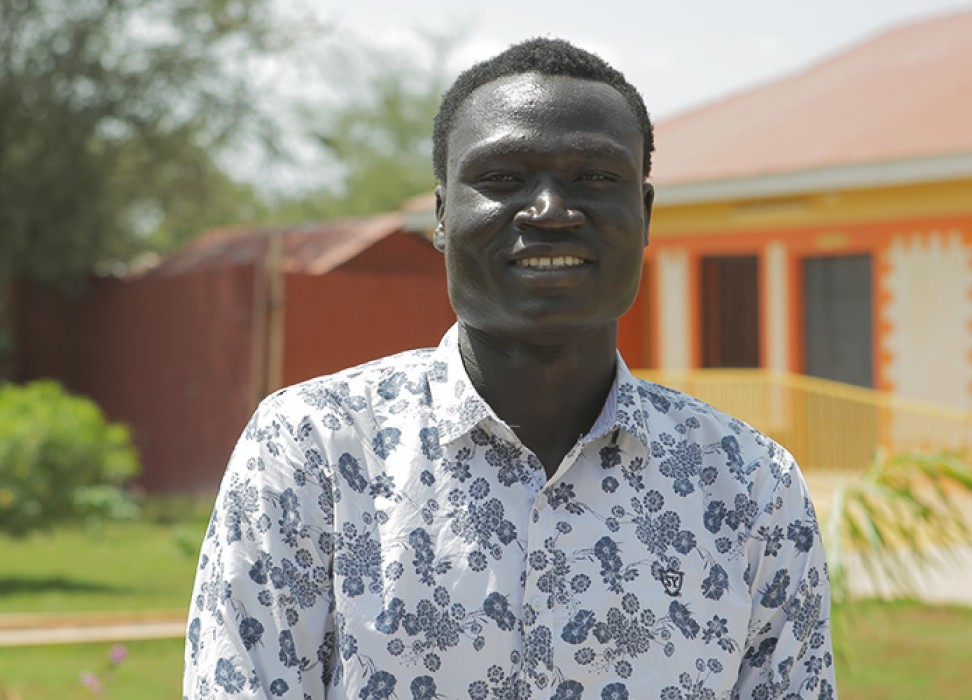
Nhial Deng has been a refugee for nearly half of his life.
Nhial arrived to Kenya’s Kakuma Refugee Camp in 2010, at only 11 years of age. Fleeing his village in Ethiopia after an armed militia attack, he walked hundreds of kilometres for days, alone and without family, to reach Kenya.
Young, lost, overwhelmed and afraid, Nhial says he expected the worst.
“It’s very hard for a young person like myself to have to go through what I went through – war and conflict, having to flee,” he explains. “It was a very traumatising journey.”
On arrival to Kakuma, Nhial was met by a pastor in the refugee community. He helped him register as a refugee with the UN, and decided to foster him.
“When I reached Kakuma, what struck me the most was that I felt home,” says Nhial. “He (the pastor) welcomed me to his family like his own kid. I was able to go to school and I just felt that sense of having a family again.”
A large camp in Turkana county in northwestern Kenya, Kakuma is home to around 160,000 people. It was built in 1992 following conflict and unrest in Sudan, Ethiopia and Somalia.
Today, Nhial heads the organisation Refugee Youth Peace Ambassadors, which aims to promote peace in Kakuma, and also delivers mentorship and empowerment activities for young people.
Nhial also works to shift the narrative on refugee issues through amplifying the voices of other young people in the camp.
He believes the dominant public discourse is driven by the media, governments and international organizations, “but the way they talk about migrants and refugees is not the way migrants and refugees talk about themselves.”
For narrative change to happen, he says, it’s crucial that refugees and migrants have a voice on these platforms. He encourages young people where possible to use the power of social media and the digital space to engage in conversations about issues that affect them and their communities.
“If I don't share my story, other people end up sharing it in their own way,” Nhial says. “It is the same for other young refugees. If we don't take advantage of these platforms, other people will be there to tell our story, and shape and twist it the way they want.”
Nhial also believes that making efforts to get to know refugees and migrants on a personal level is another element that can drive narrative change within societies.
“You shouldn’t need to read about me in a newspaper or see me on the TV to know me as a person,” he says. “You can invite me for a cup of coffee and just listen to my story. You might be surprised to find things we have in common, things we are both passionate about. Perhaps it could even be an opportunity for friendship.”
Community, belonging and a place to call home
For Nhial, arriving alone to a refugee camp as a young child, community has been essential for his growth and development and his sense of belonging.
“When I got to Kakuma, I felt home because I was welcomed to the community,” he explains. “I had friends, I felt like I was part of something, I felt like I belong here.”
“The challenges are constant,” Nhial continues. “Everyone wakes up with challenges, and goes to bed with them. But what strikes me the most, is that despite this, people also find something to smile about. Regardless of what people are going through, you can always find someone here who greets you warmly.”
Nhial’s family has been affected by conflict across three generations. His grandfather was displaced by conflict and his father fled war in South Sudan to Ethiopia, where Nhial was born.
“No one should go through this,” he says. “People need to live in a place of dignity, not a refugee camp. These places can kill human spirit.”
The most important thing, he says, is that people have a place to call home. He wants governments to think of other alternatives to refugee camps, to welcome people into communities, where they can go to school, work and have the same opportunities as everyone else.
“What I would like to see in the future for my family and for other refugees and migrants is that they have a place to call home, where their status does not limit them from living a life of dignity and respect.”
Since arriving in Kakuma, Nhial has always prioritised his education, knowing it was “the only way to secure a hopeful and brighter future.” In two months, he’ll be leaving Kenya for Canada to pursue his studies at Huron University College, where he was awarded a full scholarship.
He’s not sure in which country he will end up settling, but he knows he’ll find home if he has a community.
“I don’t think home is where we are born, or where we come from,” he says. “I think home is the people around you. Everywhere we go, there is home for us, if we take the time to find it.”
UN Human Rights launched the #StandUp4Migrants campaign on International Migrants Day in December 2020 to reshape the narrative on migration. Ahead of World Refugee Day on 20 June 2021, share your stories and the vision of the world you want to see with us on social media by using the hashtag #StandUp4Migrants.
Disclaimer: the views, information and opinions expressed in this article are those of the persons featured in the story and do not necessarily reflect the official policy or position of the office of the UN High Commissioner for Human Rights.
Video
20 June 2021
